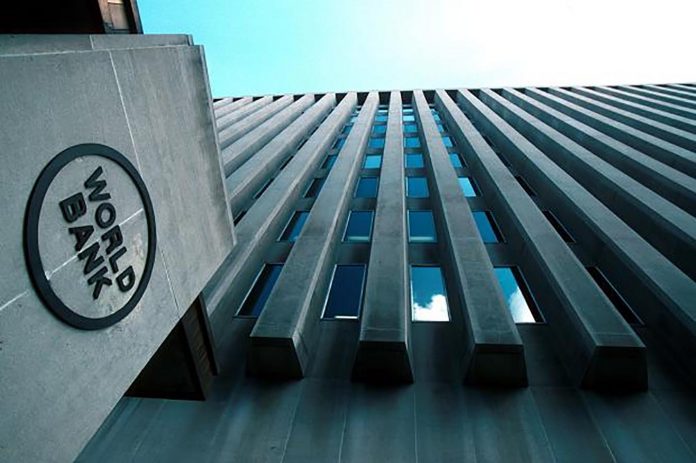KARACHI: World Bank’s Global Practices Governance Director James A. Brumby has congratulated the new government of Pakistan, led by Prime Minister Imran Khan, and vowed to continue his bank’s support in achieving economic goals.
Highlighting the importance of common global practices in auditing and accounting with regard to mobilization of resources, Brumby said that if Pakistan slows down to find ways to face the global challenges, it “would be lagging behind” in the years to come.
He was speaking at the ‘3rd Financial Reform for Economic Development’ (FRED), jointly hosted by The Institute of Chartered Accountants of Pakistan (ICAP) and Institute of Cost and Management Accountant of Pakistan (ICMAP) at a local hotel in Karachi on Monday.
The FRED forum started as a joint initiative of the World Bank and the Confederation of Asian and Pacific Accountants (CAPA), under the support and endorsement of International Federation of Accountants (IFAC). The partnership has subsequently embraced the South Asian Federation of Accountants (SAFA) and the ASEAN Federation of Accountants (AFA) in order to deliver FRED throughout the region. The first and second FRED were held in Sri Lanka and Malaysia, respectively.
The theme of the forum this year is ‘Maximizing Private Sector Finance and Solutions for Development, Role of the Accountancy Profession’. The forum is a continuation of FRED II, which deliberated upon ways to strengthening public financial management, as an essential pillar to create conditions conducive to the flow of private capital, domestic and foreign, into productive investments and to reduce illicit financial flows.
FRED Forum 2018 explored how the accountancy profession is gearing up to meet the new demands of the augmented role of the private sector in providing finance and solutions for development. Four plenary sessions were held this year, namely ‘Fostering an Enabling Environment – Private Sector Investments for Development’, ‘Gearing for the Future – New Skills for the Profession’, ‘Building Investor Trust through Effective Public Sector Institutions – Impact on the Accountancy Profession’, and ‘Regional Priorities FRED – a forum for growth’.
CAPA President Manoj Fandis on the occasion said that CAPA looks forward to a stronger, sustainable accountancy profession that will remain relevant and is future ready – a vision that we all can contribute towards.
In her address, chief guest and former caretaker finance minister Dr Shamshad Akhtar said a draft for the reforms of Pakistan’s capital market was prepared during the caretaker set up and the authorities are now finalizing it in order to make it vibrant sources of resource mobilization.
Dr Akhtar said that the financial crisis of 2008 has brought at the forefront the significance of ethical and transparent audit practices. “Quality of auditing for me is critical for the soundness of an economy, business, corporate and stability of the finance systems,” she added.
She stressed on enhancing the efficiency of Pakistan’s tax system, saying the existing potential is less than the half of what the country is collecting. “The country can easily increase the current tax to GDP ratio to 22-23 percent. The steps must be taken to reduce the avoidance of taxes”, she added.
Earlier in his opening remarks, ICAP President Riaz A. Rehman Chamdia highlighted the importance of auditing and accounting for the development and resources mobilization of country’s economic system so that the confidence of investors’ is built. The theme of the conference is not only important for Pakistan but for the region as well, he added.
“There is a need for professionals to build confidence for the better outcome of private-public partnerships (PPP) as many governments are now venturing into this kind of investment to materialize their goals,” Chamdia noted.
ICMA President Ziaul Mustafa said that ICMA Pakistan was playing important role in motivating investors by providing them feasibility studies. “We are giving policy inputs for trade, monetary, budget making as well as encouraging private sector to invest in the country,” Mustafa added.
Speaking at the plenary session, Electricity of Vietnam’s Capital Management Department Director Cao Da Khao, K-Electric CEO Moonis Alvi, IFC Pakistan officer Moazzam Ahmed, and AGP Pakistan Deputy Director Irshad Kaleemi highlighted the turnaround their respective departments achieved over the years through reforms and good practices. They unanimously called for consistent government policies and one tier of regulations at all level.
ICAP President Riaz A. Rehman Chamdia concluded the conference by thanking the World Bank, SAFA, CAPA and foreign delegates from India, Malaysia, Nepal, Philippines, Sri Lanka and Vietnam.




